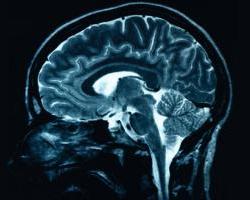The latest option in an ever-growing field of options to help smokers quit the habit is unlike any before it: This option stimulates nerve cells in the brain.
According to Xingbao Li and colleagues from the Medical University of South Carolina, repetitive high frequency transcranial magnetic stimulation (TMS) stimulates the brain's nerve cells and offers smokers a safe and effective option for cutting out smoking from their lives and addressing issues like cravings.
TMS is currently FDA-approved for the treatment of depression. These investigators applied one 15-minute session of TMS and directed it at the left dorsolateral prefrontal cortex (DLPFC), a region considered to be a major player in the brain's reward system. The result was a (temporarily) reduced cue-induced smoking craving in smokers.
The study was small — only 16 nicotine-dependent participants, none of whom had expressed any desire to quit. They all smoked at least half of a pack per day. The study consisted of receiving one TMS treatment one week, then a sham treatment the next in order to give them something to compare it with.
Their work has been published in the journal Biological Psychiatry.
The procedure is non-invasive and uses magnetic fields to create the stimulation. Patients need not be given any sedation and are awake for the procedure.
All were exposed to smoking cues both before and following the treatment. Results indicated that the cravings for a cigarette substantially decreased following TMS treatment, but not from the sham treatment.
Researchers concluded that the findings were significant but that more research was needed to learn the full efficacy and potential of TMS on smoking cessation.
Source: MNT








